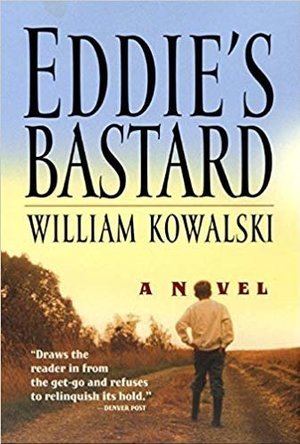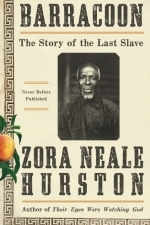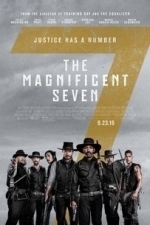
Just Send Me Word: A True Story of Love and Survival in the Gulag
Book
From Orlando Figes, international bestselling author of A People's Tragedy, Just Send Me Word is the...

Mordheim: Warband Skirmish
Games
App
Explore the ruins of the City of Mordheim, clash with other scavenging warbands and collect...

Eddie's Bastard
Book
In this rich, deeply resonant literary debut, twenty-eight-year-old William Kowalski explores the...
fiction literary fiction contemporary American

The History of the Jews
Book
The History Of The Jews: From The Earliest Period Down To Modern Times, In Three Volumes. (Vol. 3)...
Gareth von Kallenbach (980 KP) rated The Magnificent Seven (2016) in Movies
Jul 15, 2019
That being said, I thoroughly enjoyed this film. The Magnificent Seven hits all the appropriate marks you would expect from a classic western. The sprawling landscapes, big gunfights against all odds, character musical cues, honor bound good guys and dastardly bad guys. The Magnificent Seven is an entertaining gallop for western fans both old and new alike.
That is not to say that this film is anything more thought provoking then a typical “White hats vs Black Hats” western story. However it is the performance of the actors and their portrayal of somewhat typical characters that is the soul and charm of the film. Led by Denzel Washington who plays Sam Chisolm, the deputized bounty hunter hired to free a simple town from under the tyranny of a rich minor who uses violence and intimidation to take what he wants. Chisolm puts together an unlikely posse of the jokester gun-shooter Josh Faraday (Chris Pratt), the civil war veteran sharpshooter Goodnight Robicheaux (Ethan Hawke), his knife welding companion Billy Rocks (Byung-hun Lee), the outlaw Vasquez (Manuel Garcia-Fulfo), the grizzly frontiersman Jack Horne (Vincent D’Onofrio) and the native warrior Red Harvest (Martin Sensmeier). Together they take on the dastardly greedy Bartholomew Bogue (Peter Sarsgaard) and his army of paid mercenaries. The entire ensemble gives solid and entertaining performances, however it is the chemistry among the cast that creates the feeling that they had a blast making this film together, much to our delight.
When we put these elements together the film works on an entertaining level. While some may find it forgettable once it is over, they will no doubt enjoy the ride along the way. In a year where the summer blockbusters have been mostly disappointing and forgettable, The Magnificent Seven is a bright spot on the film landscape than most big budget films this year.
Gareth von Kallenbach (980 KP) rated Jonah Hex (2010) in Movies
Aug 8, 2019
The film mixes the lore of the Old West, vaguely historical aspects of post-Civil War America, and weapons from a very steampunk-the-Industrial-Revolution. The resulting environment is more explosive than the dynamite that is apparently everywhere.
Filled with ideas that trail off into the dust, it quickly becomes clear that this film was finished in a rush. There are too many characters that lack compelling, if any, back-story. The tale that remains is disjointed and drags. All the buzz about the leading lady, Lilah (Megan Fox), was over minimal participation in the film. Sure she looks nice, and wears a steampunky outfit while performing a few quick stunts, but the resulting character (and poor acting) is not worth the media hype.
The few well-played and interesting characters, aside from the brash but tends-to-grow-on-you Jonah, all have bit parts. Among the best performances are Hex’s best friend, Jeb Turnbull (Jeffery Dean Morgan), one of President Grant’s cohorts, Lieutenant Grass (Will Arnett), and the store owner and gun-runner, Smith (Lance Riddick). Most surprising is that the frequent scenes with screen veteran John Malkovich, as lead bad guy Quentin Turnbull, result in a drab uninterested character that completely fails to engage the audience. It is almost a shockingly poor performance for Malkovich.
But hey, the melding of comic book history with actual film shots in the beginning was some of the best work out there for explaining a complex and multi-media adapted back-story. Additionally, the bold uses of color, costume, sets and scenery made the film visually interesting to watch. But with a budget as big as this film had it is hard to accept there wasn’t a better story to tell.

The Hostage's Daughter: A Story of Family, Madness, and the Middle East
Book
In this gripping blend of reportage, memoir, and analysis, a journalist and daughter of one of the...

Mozambique
Book
This new seventh edition of Bradt's Mozambique remains the most established and only standalone...

Barracoon: The Story of the Last Slave
Book
A major literary event: a never-before-published work from the author of the American classic, Their...

Rural Fictions, Urban Realities: A Geography of Gilded Age American Literature
Book
The diminishment of rural life at the hands of urbanization, for many, defines the years between the...

